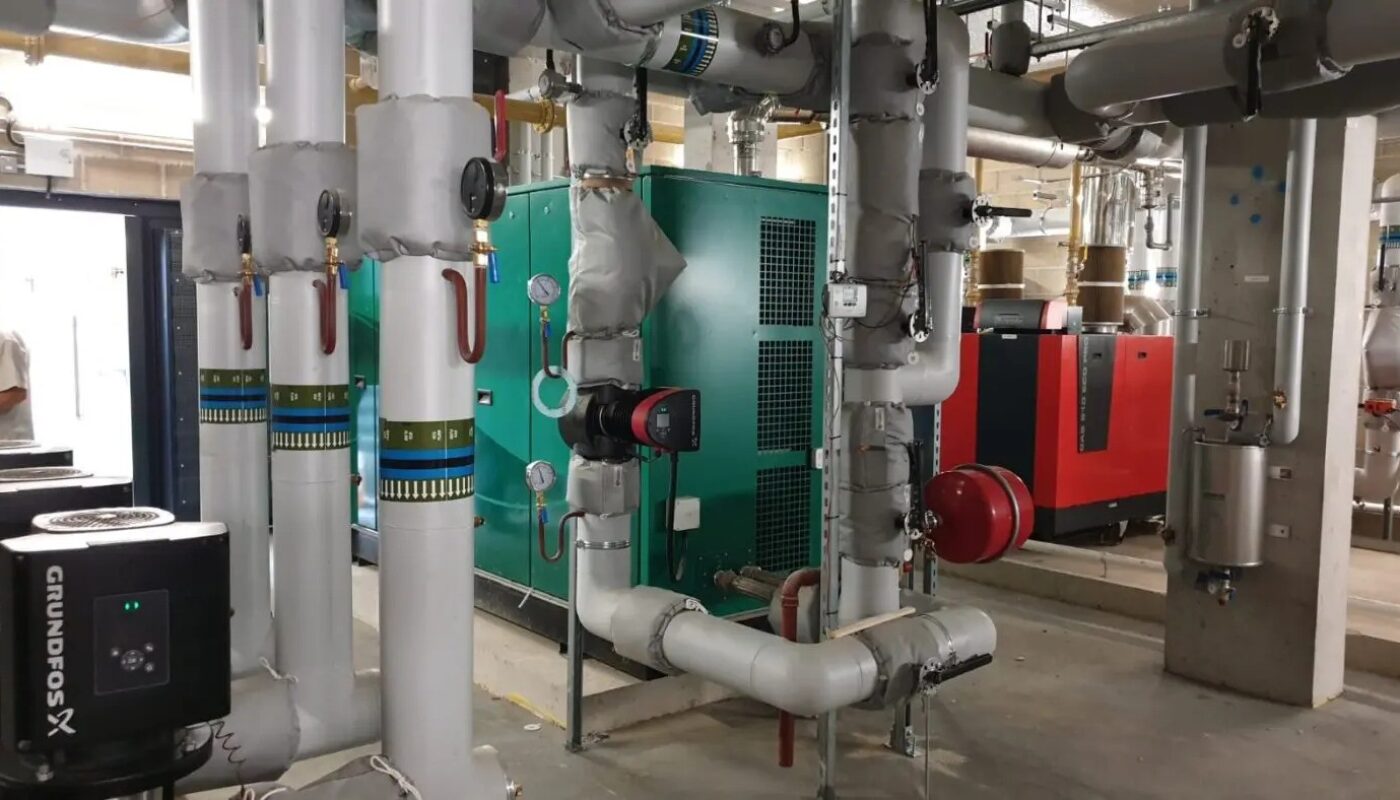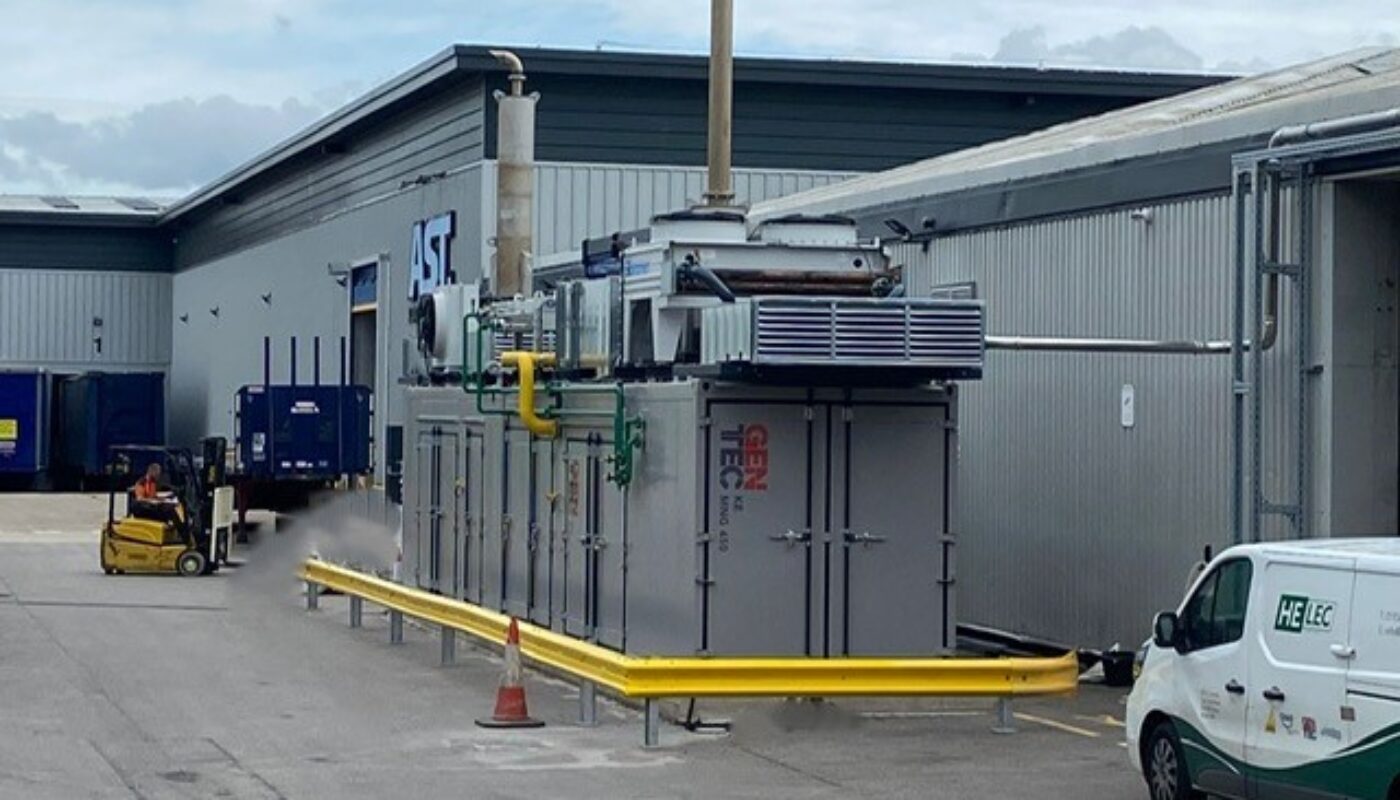Commercial Buildings working with CHP
Commercial and Industrial CHP
Throughout the UK, the government is keen to encourage commercial and industrial settings to become more energy efficient. To achieve this while maintaining a reliable and comprehensive supply of energy that is afffordable to run can be challenging, but this is where a Combined Heat & Power solution could offer a valued contribution, or even deliver the whole cost effective solution.

Cost Savings
The cost of energy today can be a major drain on commercial business Opex costs, but running a CHP could help to reduce those bills while simultaneously improving site wide efficiency.
CHP originated from fuel processing plants along with manufacturing and has now been developed for applications in other sectors too, including education, health and hospitality. In fact, any setting which experiences a high demand for energy is the ideal candidate to enjoy significant cost savings with CHP.
Although the exact amount will vary, for most mainstream commercial settings these savings could be as much as 40%.
There is a cost to implement cogeneration systems such as CHP but this can be offset by a number of exemptions such as:
- Carbon Price Support Tax Exemption
- Climate Change levy
- Enhanced Capital Allowance with up to 100% of the investment available for write-off
- Business Rating Exemptions for “good quality” CHP
If you’re engaged with using renewable technologies such as Solar PV arrays, Heat Pumps and Biomass for heating, then you couls also be eligible for additional savings under the Non Domestic Renewable Heat Incentive schemes.
A commercial business can expect to have recovered the outlay for CHP within 2-3 years. The higher your initial energy costs, the more quickly you will receive the financial benefits of a sized CHP solution by Helec.

How can Helec help?
At Helec we understand that investing in CHP might be a big decision and you want to be assured that the savings are achievable and realistic. That’s why we offer a comprehensive suite of services, starting at the very beginning with a feasibility study.
In the initial stages, we will look at your energy consumption through historical energy usage bills along with the tariffs you pay per kWh. That way we can get an overview of what you use and be able to break it down to assess if it is viable for a CHP system before we look to come to site to survey. If it is, then we will visit your premises and carry out a full physical assessment of your sites energy usage. This includes looking at how much electricity and thermal heat you use, and whether a CHP plant system is viable.
If we believe that CHP could offer your business the benefits you’re seeking, we’ll provide you with a full design and specification of the system we recommend. This provides you with all the information you need to make a fully informed choice at every step of the way.
Part of these recommendations includes advice about which type of fuel to use. There are a number of technologies available for larger installations, each of which has its own advantages and disadvantages. In most cases, Helec still recommend Natural Gas, LPG and Biogas as a fuel source as it still provides the best balance between being extremely efficient and stable as a fuel source. With the UK's transition to strive to use a greener fuel type going forward, the mixing and blending of WTE (waste to energy) Bio fuel into the main gas grid is looking to provide our users with a less Carbon intensive fuel.
Once the design has been agreed, we’ll proceed to a full plant build. As we own our own manufacturing facilities, much of the work can be completed offsite without the need to carry it out on your premises. This reduces many inconvenience and makes final onsite installation quick, easy and hassle-free.
Once a CHP is in place and up and running, Helec can continue to offer support providing remote monitoring, ongoing servicing and maintenance. This will ensure that your CHP is optimised to run at its maximum potential.
Get In Touch With Helec
Here at Helec we have a dedicated team for commercial installations. Get in touch with us today to find out more about how a CHP solution could work well for your business.FEATURED CASE STUDIES

